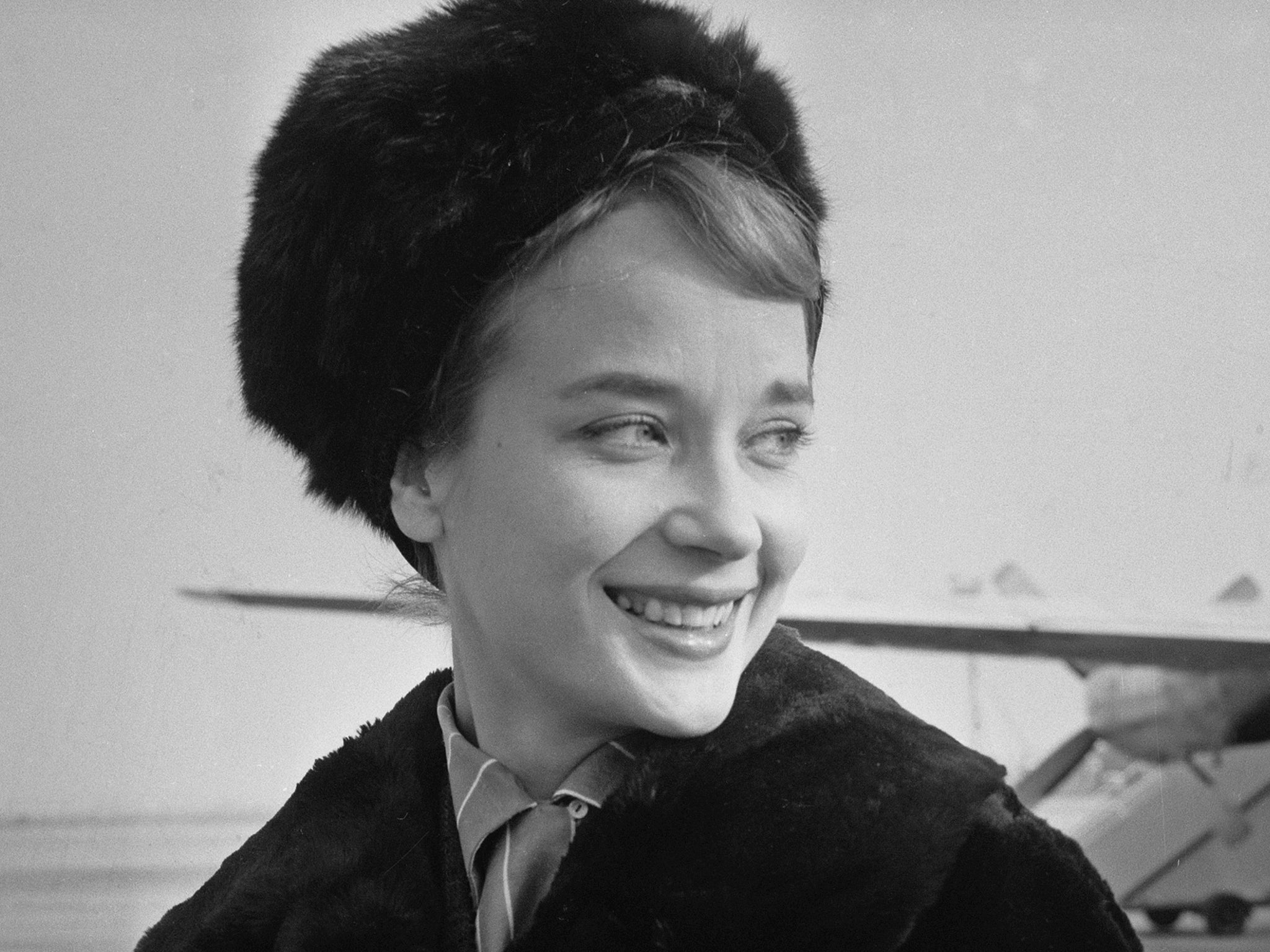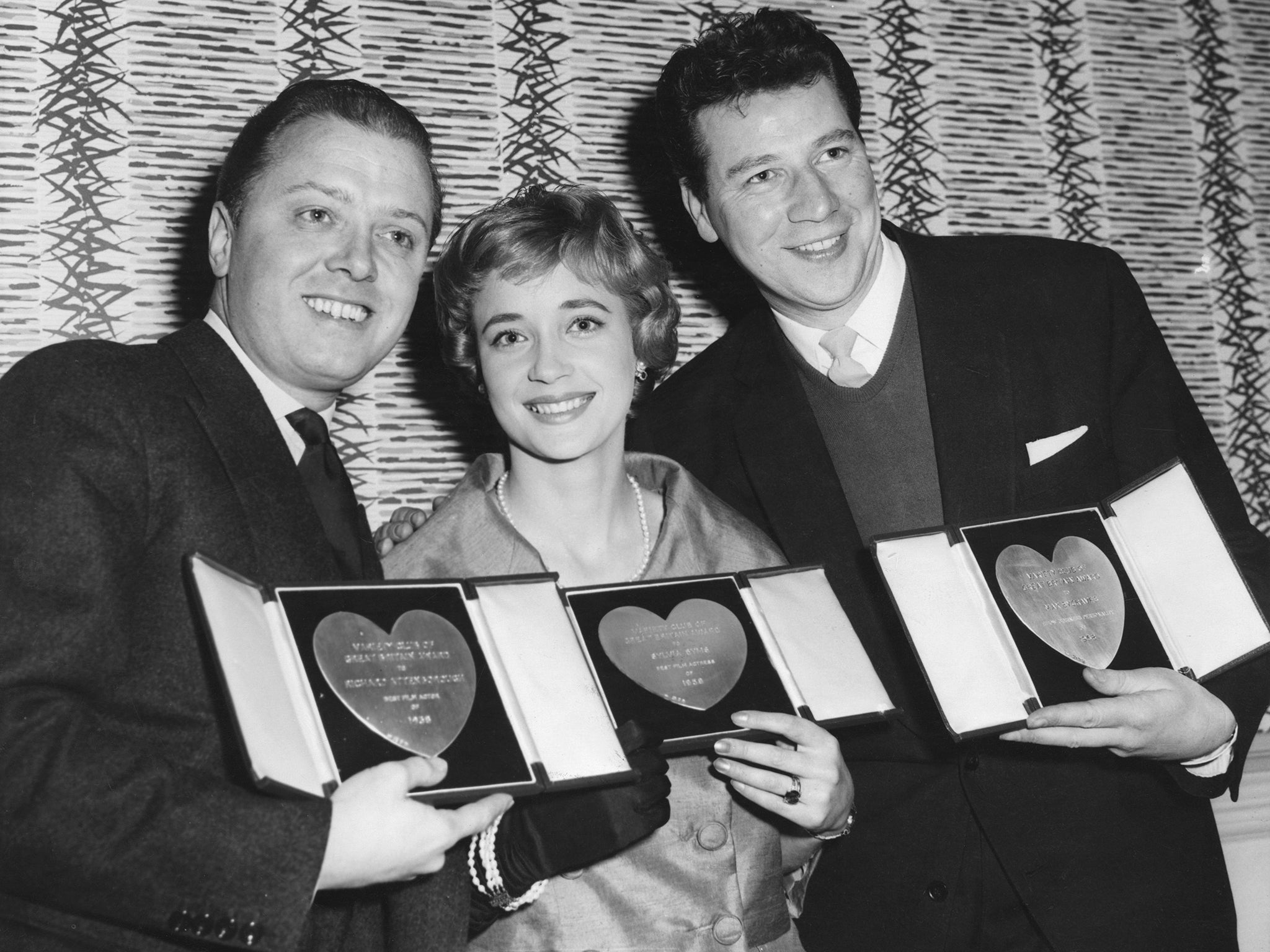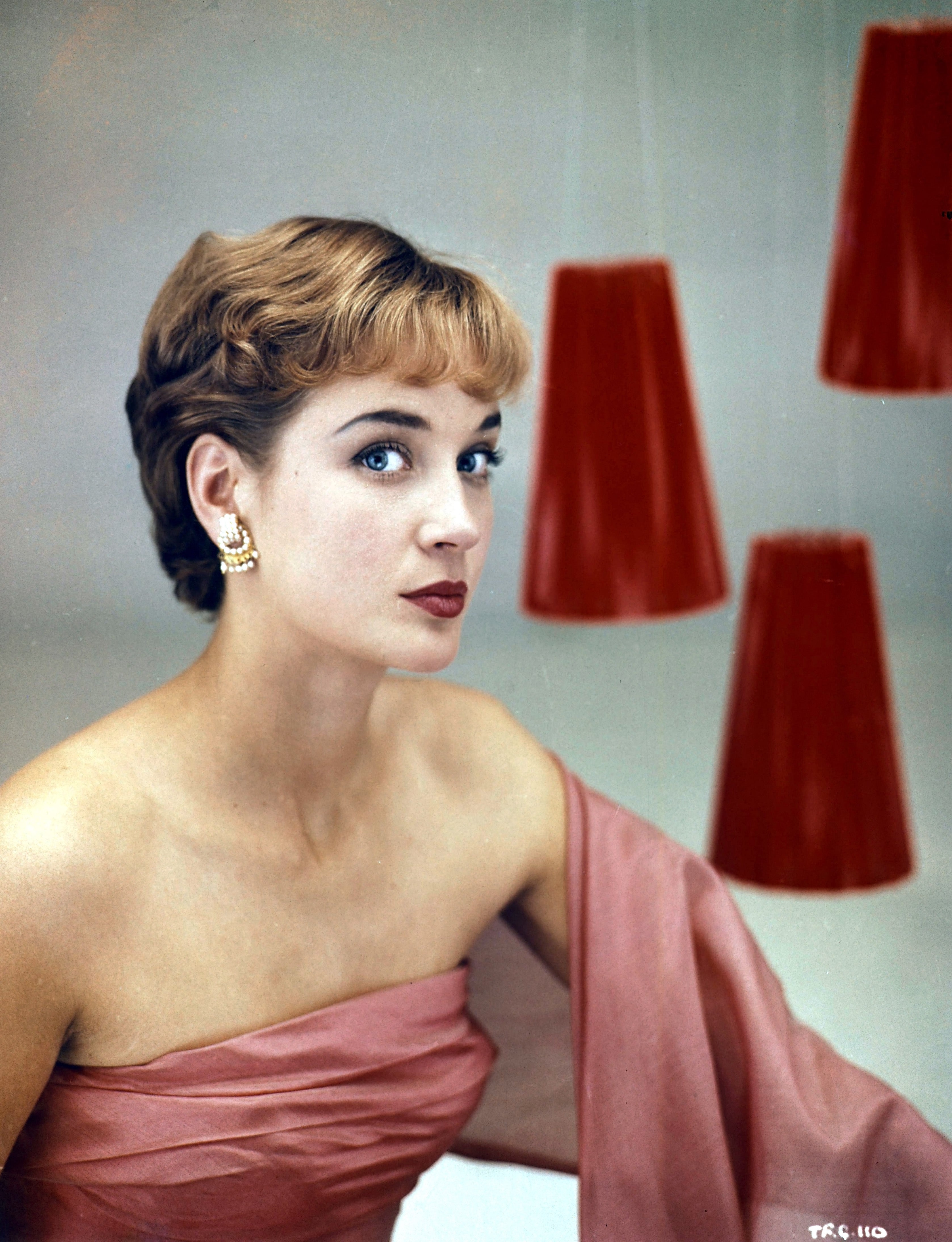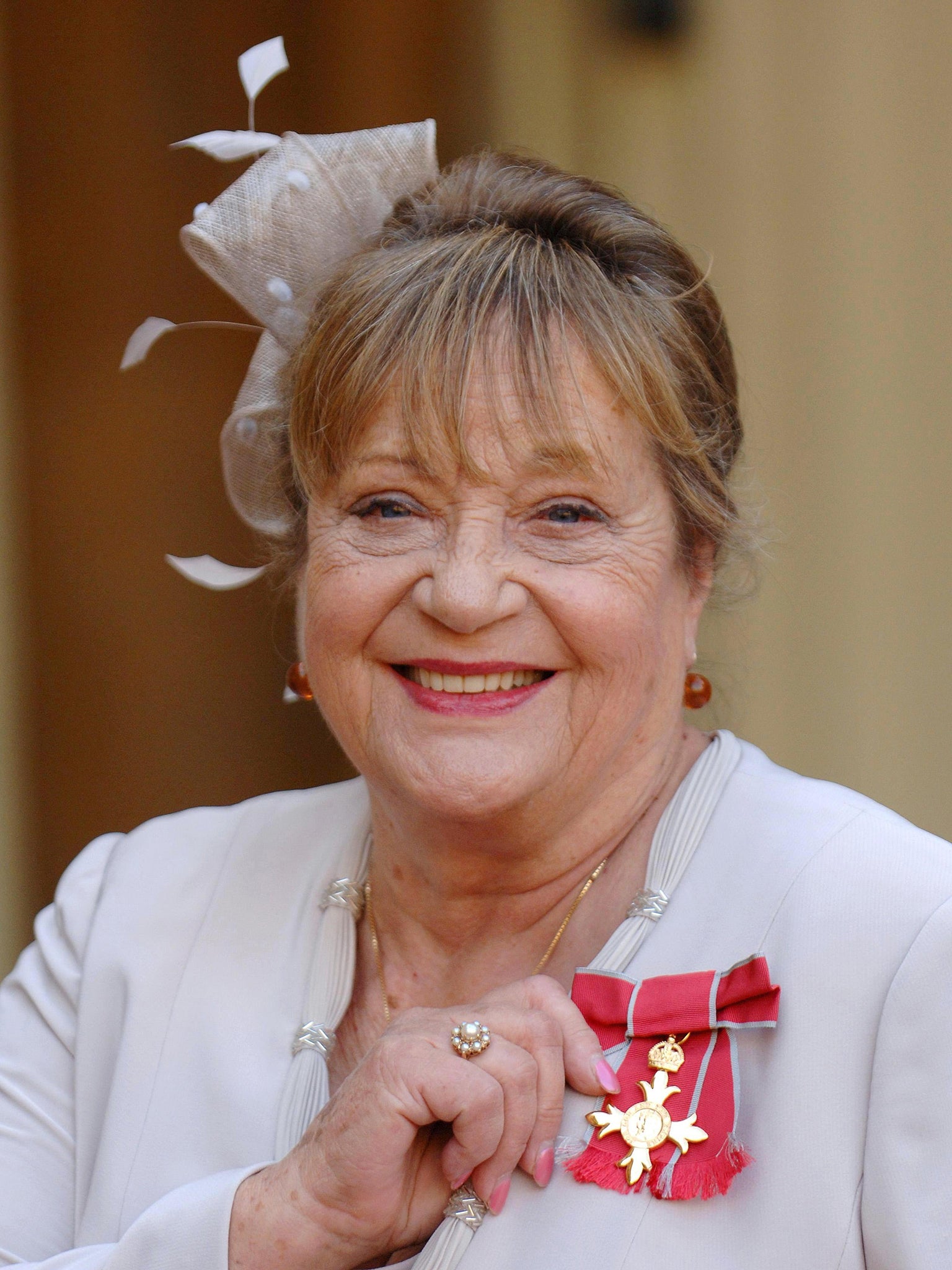Sylvia Syms: Versatile British film star who turned down Hollywood
Actor who was best known for her starring role in ‘Ice Cold in Alex’ in 1958 has died at the age of 89

Your support helps us to tell the story
From reproductive rights to climate change to Big Tech, The Independent is on the ground when the story is developing. Whether it's investigating the financials of Elon Musk's pro-Trump PAC or producing our latest documentary, 'The A Word', which shines a light on the American women fighting for reproductive rights, we know how important it is to parse out the facts from the messaging.
At such a critical moment in US history, we need reporters on the ground. Your donation allows us to keep sending journalists to speak to both sides of the story.
The Independent is trusted by Americans across the entire political spectrum. And unlike many other quality news outlets, we choose not to lock Americans out of our reporting and analysis with paywalls. We believe quality journalism should be available to everyone, paid for by those who can afford it.
Your support makes all the difference.Sylvia Syms, who has died aged 89, made an immediate impact as a screen actor in her 1956 film debut, My Teenage Daughter, Britain’s answer to the James Dean coming-of-age classic Rebel Without a Cause.
Starring as a 17-year-old hanging out with Kenneth Haigh’s delinquent youth and leaving her widowed mother, played by Anna Neagle, in despair, the actor radiated both defiance and vulnerability.
For Syms, who was 22 at the time, it was the passport to a successful, but limited, career in films, where she showed her versatility by moving effortlessly from melodrama to romance and comedy.
She said she turned down a Hollywood contract because she had married her childhood sweetheart, Alan Edney, in 1956, and could never have been as disciplined as others, such as Joan Collins, in working hard at looking good.
Several decades later, she reflected: “I wish I had known how beautiful I was when I was beautiful. I always saw other people as being much more glamorous than me.”
Nevertheless, the first of three Bafta Award nominations came Syms’s way for her performance in Woman in a Dressing Gown (1957) as a secretary whose affair with an older man (played by Anthony Quayle) threatens to break up his marriage.
There was a top billing again in Ice Cold in Alex (1958), with Syms playing a nurse alongside John Mills and Quayle in the story of British officers escorting a Second World War medical unit and a suspected German spy across the North African desert.
Moments of high drama – in a 1950s war film remarkable for giving a starring role to a woman – included the battered ambulance navigating a minefield.
Filming in Libya was arduous. “There were holes in the ground for lavatories, and so many flies,” said Syms. “We used DDT as hairspray.”
Syms also took routine parts, as a wife whose husband (played by Tony Britton) is jailed for trying to smuggle a watch through customs in The Birthday Present (1957); as Anne Wyndham, falling for George Baker’s mysterious royalist earl, in civil war drama The Moonraker (1958); and as a Cambridge undergraduate in Bachelor of Hearts (1958).
No Trees in the Street (1959) brought her another Bafta nomination. She played the sister of a tearaway (Melvyn Hayes) whom she shoots to save him from hanging for murder – after herself being seduced and humiliated by his crooked bookie friend (Herbert Lom).

She then played a Soho stripper in the screen version of the musical Expresso Bongo (1959), alongside Laurence Harvey and Cliff Richard; an Italian nun in Conspiracy of Hearts (1960); and a banker’s secretary-daughter in a love triangle in The World of Suzie Wong (1960).
Syms first displayed her campaigning side and refusal to walk away from taboo issues by taking the role of a young white woman planning to marry a West Indian (Johnny Sekka) in Flame in the Streets (1961).
Then, six years before homosexuality was decriminalised in Britain, she played a wife confronting the sexuality of her barrister husband (Dirk Bogarde) in Victim (1961).
“A lot of actresses turned the part down because of the subject matter,” she said. “I was interested in the subject and I wanted the law to change.”
Syms revealed that a family friend had committed suicide after being outed, and said previously that working on stage with John Gielgud had made her aware of the fear faced by gay men.
She also played the wife of a death row prisoner in The Quare Fellow (1962) before starring in The World Ten Times Over (1963), which was groundbreaking for featuring Syms and June Ritchie as nightclub “hostesses” in a lesbian relationship.

Offers of challenging film parts then dried up, although a decade later Syms was seen as the wife of Daniel O’Herlihy’s double agent in the romantic spy thriller Tamarind Seed (1974), alongside Julie Andrews and Omar Sharif, bringing her a final Bafta Award nomination.
After playing comic foils to Tony Hancock in The Punch and Judy Man (1963) and Sid James in The Big Job (1965), she increasingly appeared on television.
A particular success was the sitcom My Good Woman (1972-74), in which she starred as Sylvia Gibbons with Leslie Crowther as her husband Clive. Its five-series run featured Crowther as an antiques dealer whose wife is a compulsive charity worker and do-gooder.
A lifelong Labour Party supporter, Syms later portrayed Margaret Thatcher on screen twice. She followed Thatcher: The Final Days (1991) with Half the Picture (for BBC Two’s Screen Two series in 1996), Richard Norton-Taylor’s play about the Scott Inquiry into arms sales to Iraq. When she appeared in the stage production at the Tricycle Theatre two years earlier, The Independent’s Paul Taylor applauded her “sublimely comic portrayal”.
She also acted as the Queen Mother in the 2006 film The Queen, which centred on events surrounding the death of Princess Diana, with Helen Mirren in the title role. Of her character, Syms recalled: “She was supposed to be tiny. I had to always walk with bent knees so I didn’t tower over Helen Mirren.”
Syms actually played both the Queen and Margaret Thatcher in the Howard Brenton/Tariq Ali New Labour satire Ugly Rumours at the Tricycle Theatre in 1998.

Sylvia May Laura Syms was born in Woolwich, southeast London, in 1934 to Daisy (née Hale), a nurse, and Edwin, a civil servant and trade unionist.
When Syms was evacuated with her brother and sister from London at the start of the Second World War, her mother stayed to tend the wounded and suffered a head injury during an air raid.
Having never fully recovered from the psychological scars, Daisy committed suicide in 1946.
Syms, who was 12 at the time, herself suffered from depression and was helped through it by her stepmother, Dorothy (née Newton), following her father’s remarriage in 1947.
Her father’s participation in amateur dramatics was an influence on Syms, who saw acting as a form of fantasy and entertainment.
On leaving Selhurst Grammar School, Croydon, Syms trained at Rada. She graduated in 1953 and went straight into the West End as an assistant stage manager at the Theatre Royal, Haymarket, where she also acted as a princess who was the lover of King Magnus (played by Noel Coward) in George Bernard Shaw’s satirical comedy The Apple Cart.
Between stints in repertory theatre in Bath (1953-57), Syms understudied Mai Zetterling, as well as playing the maid, in Henrik Ibsen’s A Doll’s House at the Lyric Theatre, Hammersmith, in 1953, and was assistant stage manager for Charley’s Aunt, directed by John Gielgud, at the Strand Theatre in 1954.
After further West End roles, she signed a £30-a-week contract with Associated British Films – later discovering that it received £1,000 a week when she was hired out to other studios.
Her later cameo film roles included a headteacher aghast at the attitude of her bolshy pupil (Gillian Kearney as the young Shirley) in the 1989 film version of Shirley Valentine.
She had one of her most satisfying television parts in the GP drama Peak Practice for its first three series (1993-95). As Isabel de Gines, she was a magistrate and lifelong friend and confidante of Dr Beth Glover (Amanda Burton), who was devastated by her death from cancer. “I do a lot of dying now,” said Syms. “Dying is my speciality.”
Later, she was a regular in At Home with the Braithwaites (2000-2003) as Marion Riley, a friend of Amanda Redman’s lottery winner, and had an on-off run (2007-2010) in EastEnders as Olive Woodhouse, a dressmaker friend of Peggy Mitchell (Barbara Windsor).
She was awarded an OBE in 2007.
Syms’s marriage to Edney ended in divorce in 1989. She is survived by their daughter, the actor Beatie Edney, and their adopted son, Ben. Another daughter, Jessica, died shortly after her birth in 1961.
Sylvia Syms, actor, born 6 January 1934, died 27 January 2023

